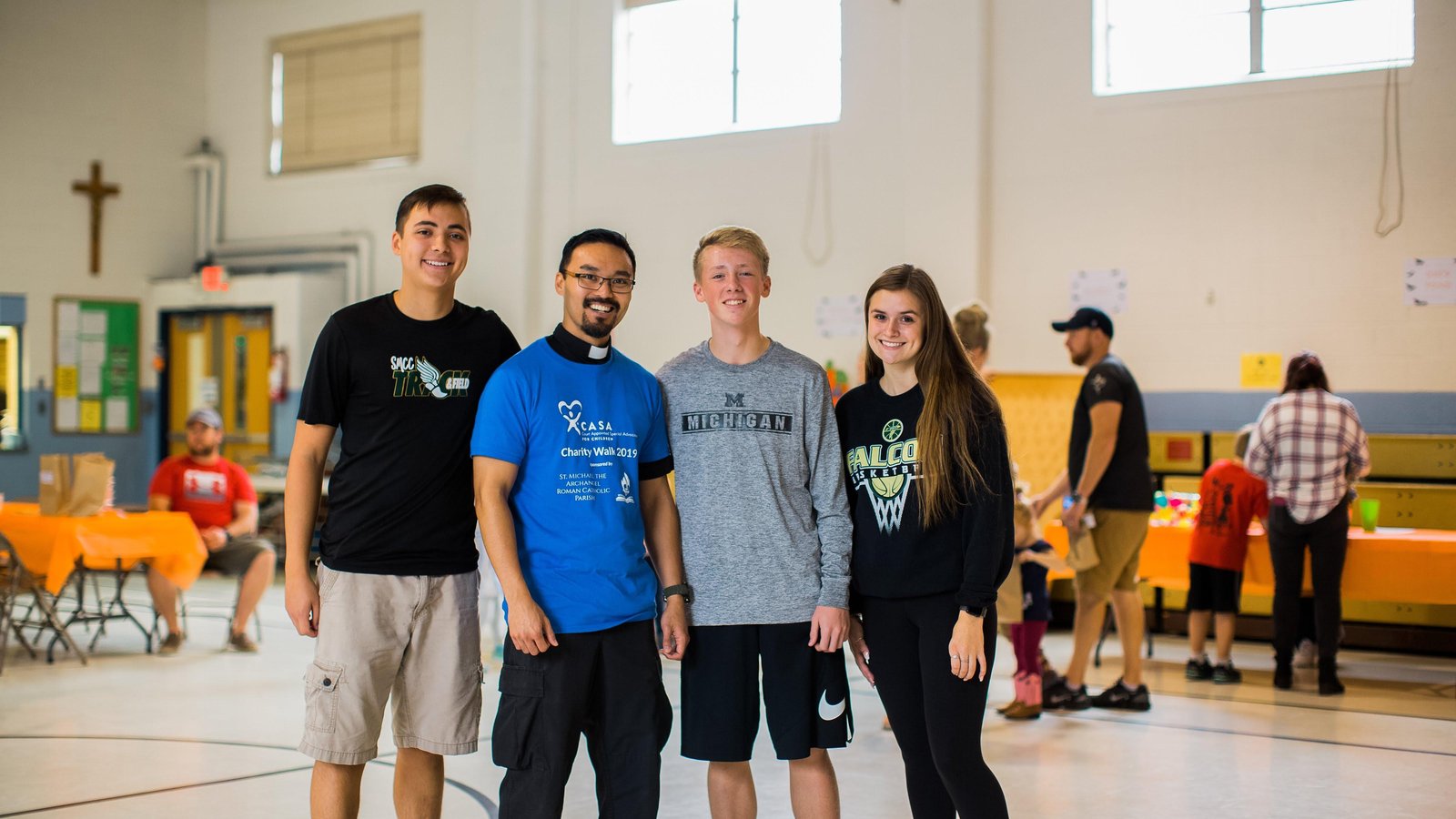
It is essential that Catholic young people know they belong and are welcomed within our parish communities. This is supported and encouraged through a Family of Parishes strategy that focuses on ministering to the young people in our communities.
“Normal” school-year opportunities, such as extra-curricular activities and milestones, were either not experienced or happened in very different ways over the past two years. Many young people are also experiencing feelings of loneliness and grief. As we move forward as faith communities to aid in our parishes’ efforts to move young people through the attract, encounter, grow and witness stages of evangelization, here are some things to consider:
Intentionally caring for our young people
One foundational way is to make it possible for young people to encounter a sense of belonging within a parish community. Research has shown that young people need and want to feel welcomed. While we often know that they should feel welcomed in our Catholic faith communities, a very purposeful approach to welcoming and hospitality is needed to significantly impact this age group.
Evaluate your welcoming and hospitality practices from the perspective of a young person:
Is each young person offered a warm greeting when they enter the doors of your parish campus?
Are they known by name?
Are they deliberately and personally invited to participate in parish events and activities?
As you assess how effective your hospitality practices are, look for easy ways to improve in this area. You may consider inviting other young people to serve as greeters to recognize their peers walking in, and think about who you can ask to invite young people to participate.
Focus on connection and integration
Once a young person experiences a sense of acceptance and hospitality, develop strategies to help youth connect with others in the parish community. These strategies are twofold: one aims to reach the young people who come to our Catholic parish by getting to know their interests and needs, know where we can connect them to ministries or mentors within the parish, and accompany them as they grow in faith. The second aims to reach the larger parish community by helping them understand where young people are at, advocate for them to connect to the larger community, and help people effectively minister to young people through training and resources.
Belonging does not just come from participation in an activity or program; this may also be the result of mentoring and accompaniment. Consider ways you can connect young people to adults and families in the community in safe and appropriate ways.
Need more ideas? Join the conversation in the Youth Ministry Group in the EGW Online Community.
‘Encounter’ starts with listening
As young people continue through the stages of the Detroit Model of Evangelization, we should continually be asking and responding to what they need from our Catholic parish community.
Ask what makes them feel welcome, what a friend would be looking for if they came to visit, or to share a time they did not feel welcomed or known.
Be engaged and hear what they are sharing.
With this information, discern what your faith community is doing well and what needs improvement to not only invite young people into our parish community, but to also invite them into a deeper relationship with Christ.
From there, you can invite various trusted adults and youth to help develop an intentional strategy for caring for young people. We need to be attentive to the Holy Spirit’s guidance while planning.
Caring for our young Church will take intentional time and effort, especially in a post-pandemic world. Parishes will better accompany youth and their families along their discipleship path, by assuring that they are welcome and cultivating connection in our faith communities. A young person’s sense of belonging is vital to their discipleship journey and ongoing faith growth.







